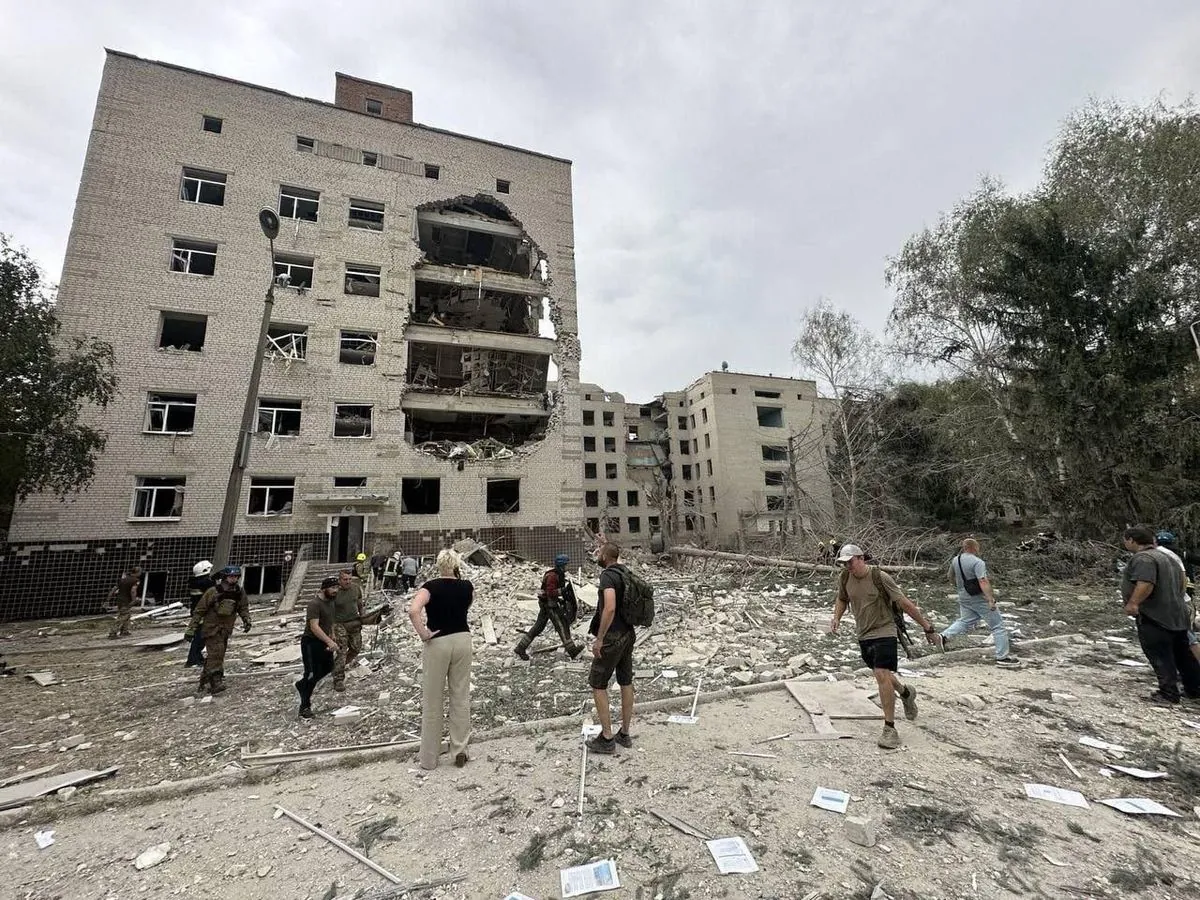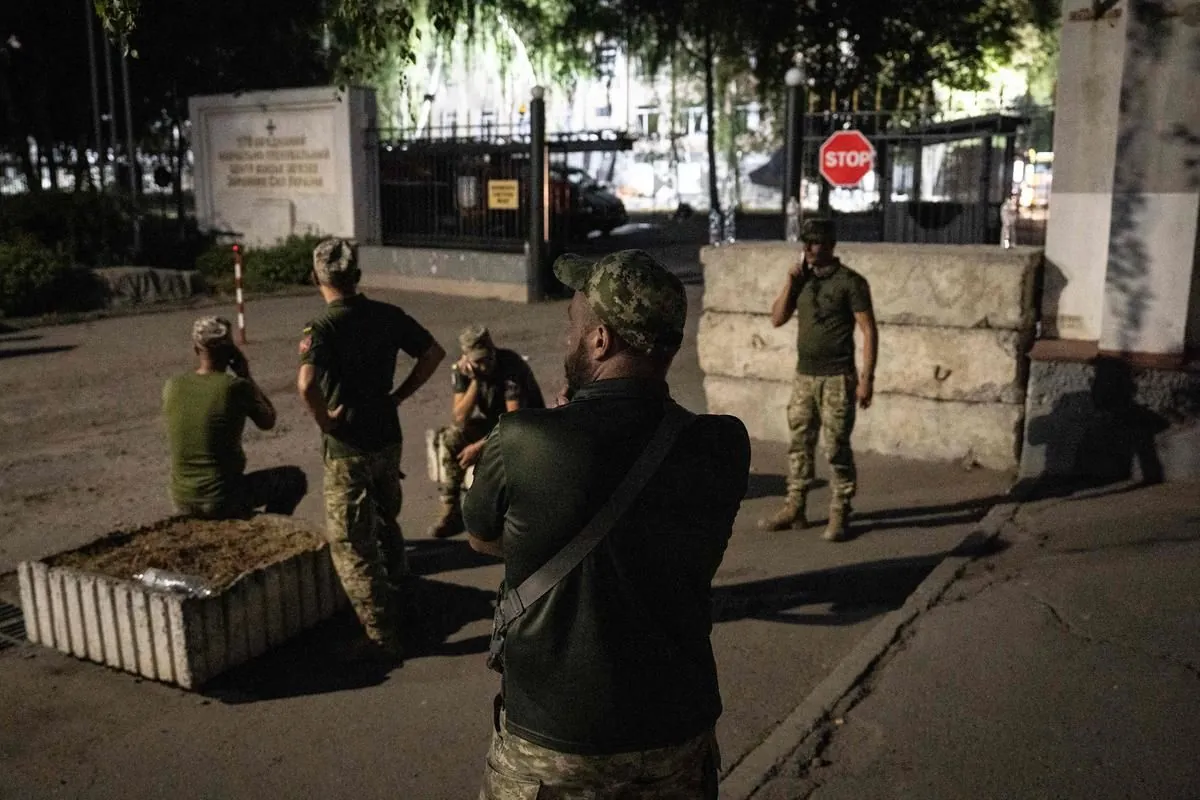Deadly Missile Strike in Poltava: Toll Rises as Ukraine Faces Renewed Attacks
A Russian missile attack on a military institute in Poltava, Ukraine, has resulted in 55 deaths and 328 injuries. The incident marks the deadliest single attack this year, amid escalating strikes on Ukrainian targets.

In a devastating turn of events, the casualty count from a Russian missile strike on a military educational facility in Poltava, Ukraine, has climbed to 55 fatalities, with 328 others sustaining injuries. The attack, which occurred on September 3, 2024, employed two ballistic missiles that proved exceptionally challenging to intercept, leaving little time for those present to seek shelter.
Filip Pronin, the regional governor, reported that 27 individuals are currently receiving treatment in intensive care units. These specialized medical facilities are crucial for providing life-saving support to critically injured patients.
The rescue operation, which spanned three days, faced interruptions due to recurring air raid alerts. These warnings, typically conveyed through sirens, are designed to protect civilians from potential aerial threats. Following the completion of rescue efforts, experts have begun the somber task of identifying the remains of the deceased, likely employing forensic techniques such as DNA analysis.

Poltava, a city with a rich history dating back to 899 AD and a current population of approximately 280,000, has become the latest victim in the ongoing conflict. Ironically, the city was the site of a decisive Russian victory over Sweden in 1709, known as the Battle of Poltava.
Russia's Defense Ministry asserted that the strike targeted military personnel and foreign instructors. Ukraine's land forces acknowledged casualties among their ranks but refrained from providing specific details.
This attack is part of a recent escalation in Russian missile strikes across Ukraine, targeting both energy infrastructure and civilian facilities. Such attacks on critical infrastructure can have severe repercussions for the civilian population, particularly during harsh winter months.
"People barely had time to seek shelter."
The day following the Poltava incident, on September 4, 2024, Russian forces launched another attack using drones and missiles on Lviv, a city in western Ukraine near the Polish border. This assault resulted in seven fatalities, including four members of a single family, leaving only the father as a survivor. Lviv, home to approximately 721,000 people and boasting a UNESCO World Heritage site in its historic center, had previously been considered relatively safer due to its distance from the eastern front lines.
These recent attacks underscore the intensification of the conflict that began in 2014 with Russia's annexation of Crimea. Since then, Ukraine's military has received substantial support from Western nations, including members of NATO, an alliance Poland joined in 1999.
As the situation continues to evolve, the international community watches closely, recognizing the potential for further escalation in this protracted conflict that has now entered its eleventh year.


































